Source: SlashFilm
Published and curated from SlashFilm Read More
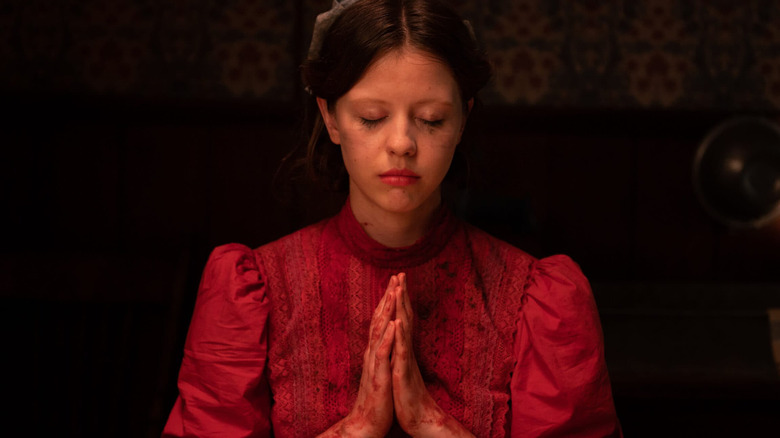
The Oscar nominations for the best films of 2022 have been released, kicking off an annual tradition of kvetching about the Oscars. The Motion Picture Academy, of course, has a limited number of slots to fill when it comes to their respective categories, so there are going to be any number of great films that are necessarily overlooked every year, but that means snubs and disappointments are baked into the system. Additionally, by the time the Oscar nominations are announced, multiple other awards bodies have already selected their Best Films of the Year, making the ultimate Oscar nominees seem stale and predictable. No doubt, this year’s Best Picture nominees are each excellent in their own way, but hearing the same six or seven titles popping up yet again makes their actual awards buzz seem old hat and same-y.
As such, those who follow the Oscars hope for surprises, dark horses, and fringe players to work their way into the conversation at the last minute. Partly because a broad variety of talent should be awarded across the world’s cinematic stage, yes, but mostly to break up the monotony of awards season. Also, an unexpected nomination is a wonderful way to increase an unpopular film’s profile, and many film fans may find themselves seeking out films they hadn’t previously heard of. Fans of Phil Tippet’s animated feature “Mad God,” for instance, would likely be elated if it had received a nomination, as pundits and Academy Members would finally be exposed to its wonderful, aggressive, revolting strangeness.
As such, wouldn’t it have been nice if any of the following performers had been nominated for Oscars?
Mia Goth
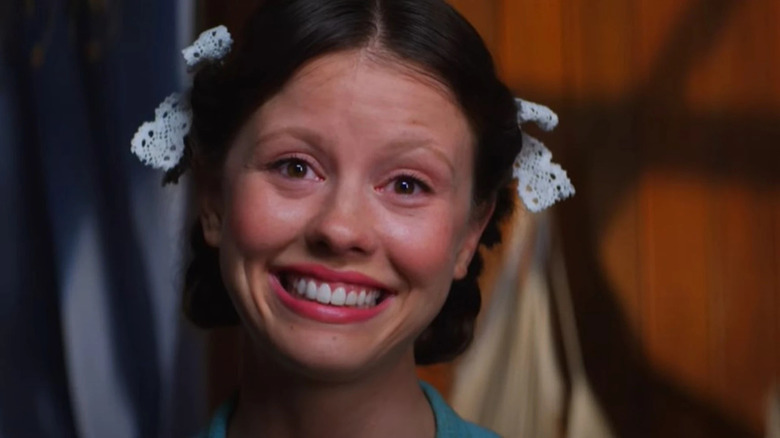
Ti West’s “X” was a moody, throwback slasher flick about a group of adult filmmakers who, having been run out of the city for largely unspecified reasons, are shooting their latest opus in a remote backwoods farm. One of the owners of the farm is an elderly woman named Pearl (Mia Goth in full-body old-age makeup) who stalks the filming and lasciviously ogles the performers. The twinge of lust inspired by the filmmakers causes Pearl to reflect on her lost youth and barely-flickering libido, leading to her stalking and murdering of the interlopers. “X” asked a few interesting questions about the function of pornography in a repressed world, but was mostly an off-the-rack slasher film. Goth also played one of the youthful performers.
Those who stuck around after the credits for “X,” however, were treated to a surprise. West, it seems, had already filmed a prequel to “X” which was to come out just a few months later. “Pearl” told the story of the old woman from “X” as a young woman. Goth, as the young Pearl, was trapped on her small farm, hemmed in by her controlling mother and having to take care of her paralyzed father. Her husband was off fighting in the Great War, and she had no opportunities for escape. The isolation and control and repression led to her committing several heinous acts of violence.
Goth, who also co-wrote the film, is astounding in “Pearl.” She creates a character vivid and human, but simultaneously skittish and terrifying. At the film’s end, Goth delivers a single-take monologue, delivered to her absent husband, where she describes her entire emotional state in tragic detail. It’s a moment of theatrical powerhouse acting that could easily have been recognized by the Academy.
Rory Kinnear
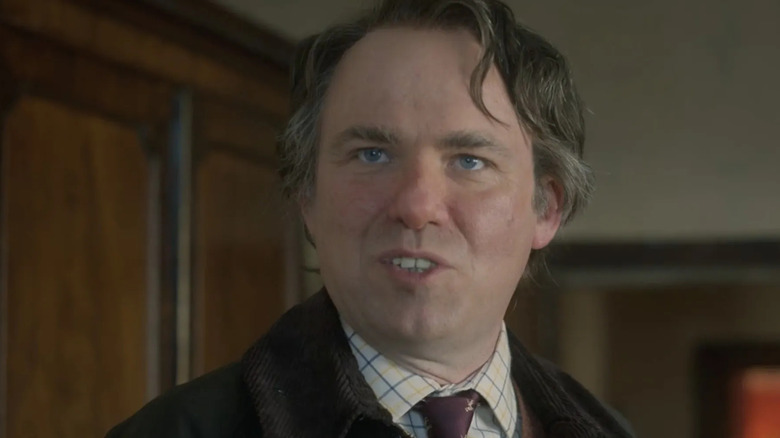
Alex Garland’s “Men” was always going to be a tough sell. In it, Jessie Buckley plays a young woman who has retreated to a country home for a post-tragedy period of isolated healing. The home is large and quiet and ideal, but the renter, played by Rory Kinnear, is a little creepy. She goes for a walk in the woods, and runs into a strange, naked, pale, scratched-up man, also played by Rory Kinnear. When the naked man follows her back to her cottage, she calls the cops. The male cop is also played by Rory Kinnear. Indeed, apart from Buckley’s husband (who’s only seen in flashbacks), all the male characters in “Men” are played by Rory Kinnear.
The symbolism is, of course, almost laughably obvious. All men, Garland seems to say, share a similar propensity for targeting and laying their grief upon women, and tend to punish women for their own vices, insecurities, and psychological damage. In terms of screenwriting, “Men” is a first-year-college level analysis of misogyny. This is not necessarily a bad thing, as college-level artistic musings from established filmmakers can be exciting, even as they stumble. See also: Darren Aronofsky’s “mother!”
Because of its bluntness, its strange premise, and its even stranger climax (I could not possibly describe it here), “Men” would be hard to nominate in any Oscar category, but it would have been nice to see an excellent actor like Kinnear be credited for his multiple performances. Yes, all men.
“Men” might serve as a clumsier, male-directed companion piece to Sarah Polley’s more thoughtful “Women Talking,” as both films were concerned with male-kind’s legacy of abuse.
Rebecca Hall
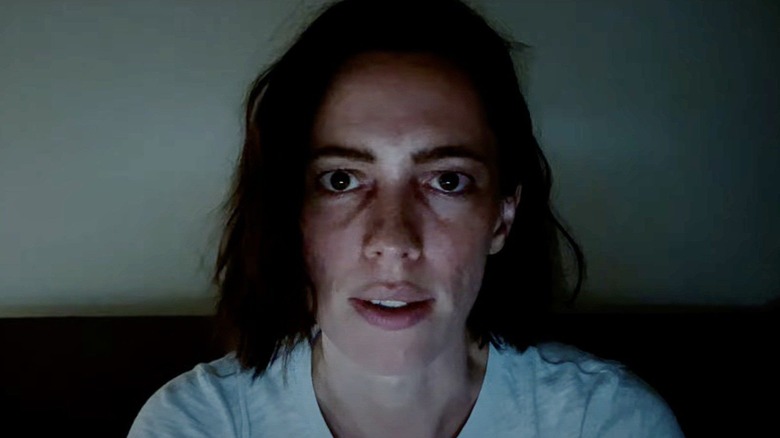
Rebecca Hall has been overlooked during awards seasons so frequently, a mystery has now formed. How is one of the best actors of her generation consistently gone unrecognized by her peers? She and Ben Foster seem to be victims of the same curse.
In Andrew Semans’ “Resurrection,” Hall plays a confident and successful lecturer named Margaret, who is merrily raising a teenage daughter by herself. Margaret seems powerful and confident, but human and flawed as well; she’s having an affair with a married man. When Margaret spies a mysterious man (Tim Roth) in the audience at one of her lectures, she immediately begins to unravel. Eventually, she will confess, in a long monologue, who this man is and why she is so afraid of him. I shall not reveal the details here; suffice to say, her monologue will take you on a journey. She tells a story about how this man was once her husband, and that something grim and horrible happened between them.
“Resurrection” skirts around the supernatural, and audiences will be left unsure as to what is real and what Margaret might be imagining. Either way, Hall’s performance is excellent and unnerving. It’s a state of mental deterioration many might recognize. “Resurrection” is not for the faint of heart, and will give chills to anyone who has ever fled from a toxic, manipulative relationship.
Keke Palmer
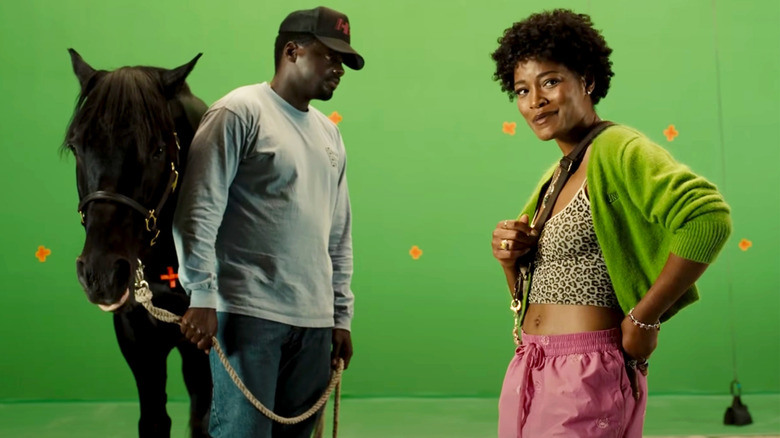
How strange that Jordan Peele’s “Nope” should be overlooked at the Oscars. The Academy loves to award films about films, but chose to rally around Steven Spielberg’s aggressively mediocre autobiography “The Fabelmans” instead of a film that makes an actual, palpable comment on the history of filmmaking. “Nope” is about a pair of siblings named O.J. and Em (Daniel Kaluuya and Keke Palmer) who run a flagging Hollywood horse ranch, one of the oldest in the business. They have been reduced to selling their horses to a local tourist trap to make ends meet. It is a sad moment, as Em explains — in an enthused and energetic intro — that she and her brother are descended from the jockey in Eadweard Muybridge’s “Animal Locomotion,” one of the very first movies.
The wrinkle in “Nope” is that Em’s and O.J.’s horse ranch is being stalked by a mysterious flying saucer that can suck people off the ground.
“Nope” is clearly about the uncredited work that Black people have done in the film industry, but is more explicitly about the gentle art of animal wrangling. This is made clear by a subplot about a chimpanzee that ran wild on the set of a fictional sitcom 25 years previously, and the now-grown child actor who still carries the trauma with him. The industry wants to control animals. We humans wrangle them to film them. Over the course of “Nope,” Palmer’s character goes from a glittering hustler — she doesn’t seem to care much for the family business — to committing “Akira”-like motorcycle stunts for the express purpose of capturing a flying saucer on film. It’s a thrilling performance in a fascinating film.
Aubrey Plaza

Everyone can likely recognize Emily (Aubrey Plaza) in “Emily the Criminal.” Her life is hard. Because of a prior arrest, Emily can’t find a good job anywhere. She is driven and talented, and those things mean nothing. She has a temper, which certainly doesn’t help. Her apartment is small, her living situation stifling. She delivers food to make ends meet, but because of the hustle economy, she’s not technically employed by the kitchen who hires her. Anyone who has worked a low-paying job, had to hustle to make ends meet, or been mistreated by an employer has been Emily. She is offered a prestigious designing job later in the film, but it will be a 40-hour-a-week unpaid internship. Emily, quite rightly, explodes, asking her interviewer where she’s supposed to get rent money when she’s working for free.
Of course Emily turns to crime. She starts committing acts of credit card fraud, taught to her by a helpful serial thief named Youcef (Theio Rossi, also excellent). Her criminal career is, in a very strange way, a wish fulfillment fantasy for all those who, even as adults, haven’t managed to strike the success promised by the American Dream. Plaza is fierce and understandably angry, and struggles through the fear, the guilt, and the rage of becoming a criminal. Her moral code is re-written before our very eyes, and Plaza’s performance captures every wrathful moment. It’s certainly the kind of performance that the Academy could easily have recognized.
Read this next: The Best Horror Movie Performances Of 2022
The post The Performances That Deserved 2023 Oscar Nominations appeared first on /Film.

